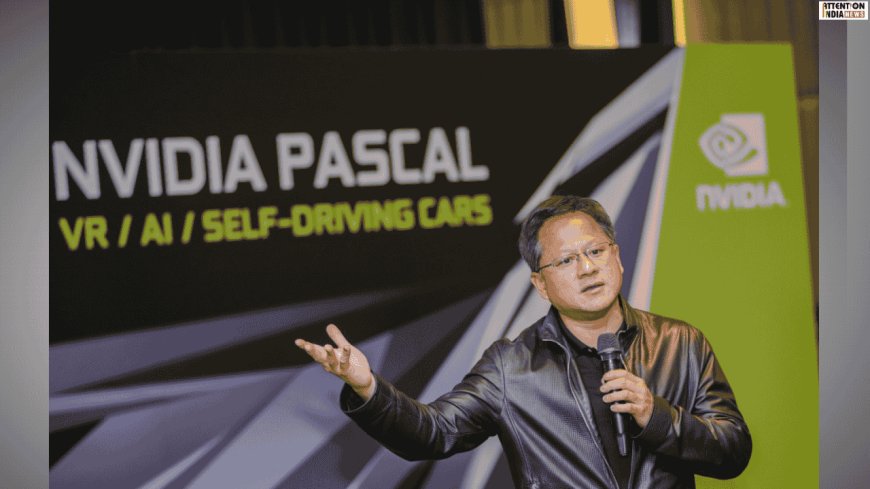Nvidia CEO Says U.S. Export Controls Cut China Revenue to Zero, Hopes for Policy Change
At an event hosted by Citadel Securities on Oct. 6, Nvidia CEO blamed U.S. export controls and said the company no longer expects any revenue from China in its forecasts.

New Delhi (India) October 19: Nvidia’s share of the Chinese market for advanced AI accelerators has fallen from 95% to zero, with US export controls still cutting into sales, according to Jensen Huang, CEO of Nvidia. The remarks were made during a live interview at Citadel Securities’ Future of Global Markets 2025 event in New York.
Export Restrictions Block High-Performance Chip Sales
At a Citadel Securities event earlier this month in New York, Huang said the company is effectively blocked from selling high-performance AI chips, including versions of its A100, H100 and H200 models, to Chinese companies since the restrictions kicked in at the beginning of 2022.
The interview was recorded on video in recent days. Huang said he hoped for a change in policy. And he stressed the exclusion of Nvidia from China does not just hurt the company, but has far-reaching consequences for both America and China as well. “What harms China could oftentimes also harm America, and even worse,” Huang said. He also emphasised the importance of China in driving AI globally, having half of the world’s AI researchers.
China Accelerates Push for Semiconductor Self-Reliance
The comments by the Nvidia CEO, however, are also coming as China continues to press forward with a national campaign for semiconductors’ self-reliance. Insurgent Chinese AI and semiconductor rivals are scrambling to bring domestic alternatives to the market, whittling away what was once Nvidia’s dominant market share. The strides that Huawei has made, using techniques such as clustering to get around Nvidia’s technology and state-of-the-art manufacturing, reflect China’s ambitious push for semiconductor self-sufficiency.
While it secured approval to sell a less powerful H20 chip customized for the Chinese market, Nvidia still has more hurdles ahead. Chinese officials initiated a security review of the H20, and local customers were warned off the product, shrinking Nvidia’s Chinese presence even further. Huang cautioned that shutting out Nvidia in China would allow Chinese companies like Huawei Technologies to dominate the market instead.
Huang Warns U.S. Risks Losing Global AI Edge
The U.S. government has increased control over AI accelerators sold to China in a broad approach intended to cut off access for Beijing to the most advanced semiconductors. But Huang’s comments show just how quickly the dynamic on the ground has changed.
Caution from Nvidia comes as evidence of further splintering in the AI stack surfaces. China’s hyperscalers and AI labs have been relying more on domestic silicon or alternative hardware in the wake of export curbs. It has accelerated production plans for localized infrastructure. That is a trend Huang raised earlier this year, when he cautioned blanket bans could actually lead to the emergence of competing stand-ins.
However, when asked if he believes Nvidia’s business could go back to China in the future, Huang could only say that he would like it to do so, but for now the company has turned its back on the region.

 Aadrika Tayal
Aadrika Tayal 





